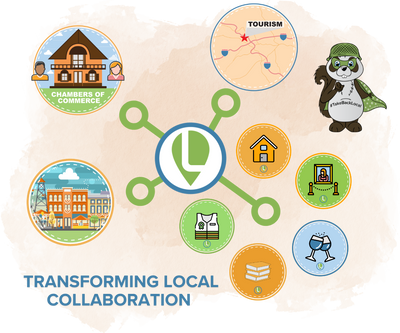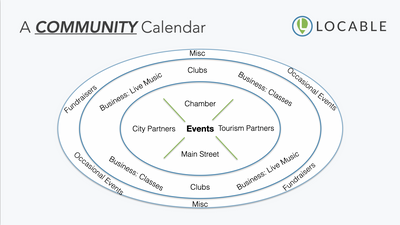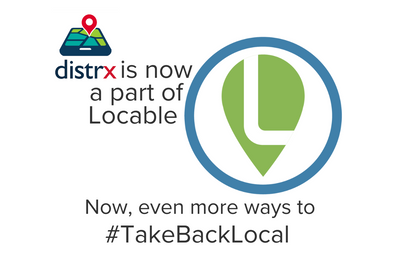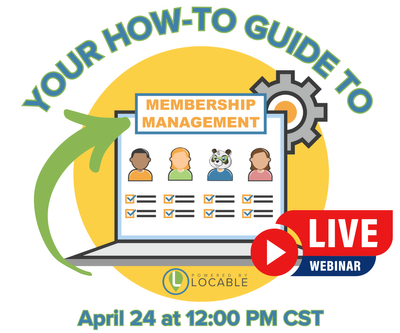An Overview of Search Engine Optimization Fundamentals for Local Small Businesses

Search Engine Optimization (SEO) is a topic that comes up frequently with local businesses and their sentiments tend to range from “I have no idea” to “I get the basics.”
Once we talk for a few minutes it becomes clear most people have some understanding of outdated SEO concepts but little more. It doesn't have to be this way.
If you don’t want to read the detailed explanation, feel free to scroll to the down to watch Google’s short video about their 2013 overhaul called Hummingbird and their Knowledge Graph.
Let me be clear about something, great content that people want to read, share and interact with will ALWAYS be the foundation of great SEO. Everything else is just details!
Claiming your Google My Business account is an important step and, of course, having a solid and effective local website is critical while Facebook plays a lesser role.
Google continues to make changes in their algorithm to find better results not to cause problems with your business. Sure, they’re a for-profit and they want to grow but they know creating a better resource is the key and that means finding the most relevant content for each person on each search.
Yep, you read that correctly. Google customizes search results for each person and each context i.e. if you and I both search for something the results we get will likely vary based on our search history, local and possibly things like time-of-day. You’ll also introduce a new set of results if you’re searching from your phone as opposed to your computer as “intent” tends to vary.
On that note, Google is now seeking to understand search “Intent” and no longer relies predominantly on keywords!!!
With that out of the way, let’s look at old SEO ideas which are no longer important or even relevant as a result of Panda (2011), Penguin (2012) and the complete algorithm overhaul named Hummingbird (2013) in addition to the 200 or so key components of Googles search algorithm.
To kick things off, if you use the phrase “hits”, are thinking about paying for a service to “submit your site to search engines”, or wondering how you can improve your ranking by improving your “meta” tags stop, stop that right now.
Those things are irrelevant, not needed and a waste of time and money, and irrelevant to search results respectively. And we’ll show you below why “Keywords” are no longer what they used to be, at least for Google.
First, Panda was introduced in February 2011 to help Google suss out duplicate content across the internet and penalize people for posting identical content (or stealing content).
Prior to Panda, sites could be thrown together and simply harvest rss feeds to pull in content from third parties without adding any unique value or custom content and Google would likely send you a stream of traffic requiring practically no human involvement.
Overnight Panda put a stop to that.
Now “duplicate content” is viewed with disdain by Google and it negatively impacts your results in Google. What constitutes duplicate content is unclear though Google is very adept at determining attempts to defraud them.
So, is third-party duplicate content used by permission to be avoided? Not necessarily. Google now allows you to include a “canonical reference” in the code identifying the source of the content to assign credit and thereby waiving a claim of uniqueness – all content on our platform incorporates a canonical reference for instance.
The value for a site that remains in posting others’ content or utilizing our Local Connections features is simply more relevant content for your readers and you can still benefit from social sharing and distributing content via email.
Next, Google introduced Penguin in April 2012 to reduce “Black Hat SEO” or the inappropriate buying, selling or trading of links along with spammy link generation in things like comments, forums etc.
Basically, anything that artificially and inauthentically increases the number of links that point to a site are a no-no and can be severely penalized. It’s one reason that all user-generated “off-site” links use No-Follow in our system and we STRONGLY encourage business owners to select the No-Follow option when adding links to sponsored content or the like.
A Simple Introduction to Google Hummingbird and the Knowledge Graph aka Google is Smart
Finally, we have Google Hummingbird (see video above) which was not merely an update but a rewrite of the search algorithm Google introduced in August 2013.
With Hummingbird, Google moved mostly beyond Keywords to Search Intent by tapping their ever-growing Knowledge Graph to provide the most relevant results to each person not merely match Keywords.

In the Google Analytics image, you can see what should look familiar to you if you spend any time in Google Analytics, Google no longer provides keyword information for people who get to your site by search.
Any keywords provided come from Bing or other search engines.
What does this all mean for local businesses?
Focus on quality local content first – blending and thoughtfully connecting articles, with events and business information.
Things like META tags have ABSOLUTELY NO BEARING on where your content appears in search results though “Meta Description” is what Google will show wherever the result is found, approximately 155 characters.
Keywords in and of themselves are done, Google is focused on semantic search with their Hummingbird update and the idea of “getting to the top of Google for XYZ phrase” which has always been a long-term proposition is now a moving target – since search phrase and intent are not always the same.
On-site SEO is important only insofar as it doesn’t slow you down. Having the right running shoes doesn’t make you faster but having the wrong ones can slow you down and cause injury. As such, your technology should:
Speed and Structure Matters
Set things like META Title & Description (to improve how not where you appear), Open Graph (OG) tags for social sharing, Schema & Structured Data for helping Google parse events from articles etc.
Content should be easily & reliably shareable – incorporate either AddThis or Sumo or something similar, when combined with OG Tags ensures content is shared and looks great when viewed on Facebook and other sites.
Presenting content in an easily readable and easily discoverable way is important i.e. appropriately linking within content on your own website.
The volume of content on your site is important as is thematic consistency to build relevance i.e. the broader your site geographically the less relevance you’ll demonstrate in any given geography. Diversity in local content as in articles, events, business information, guides and more is critical and authentic links still demonstrate relevance as does social sharing.





